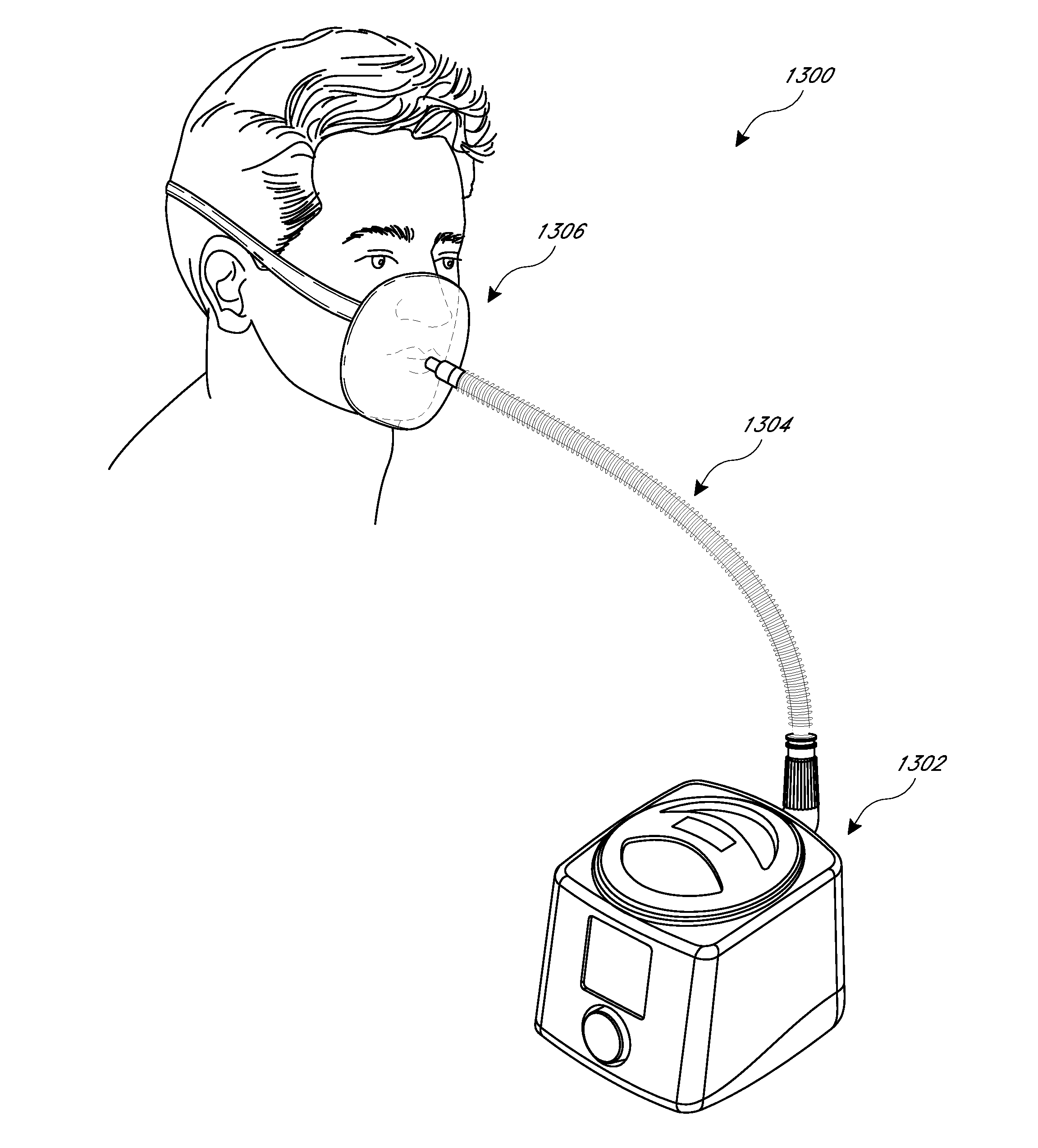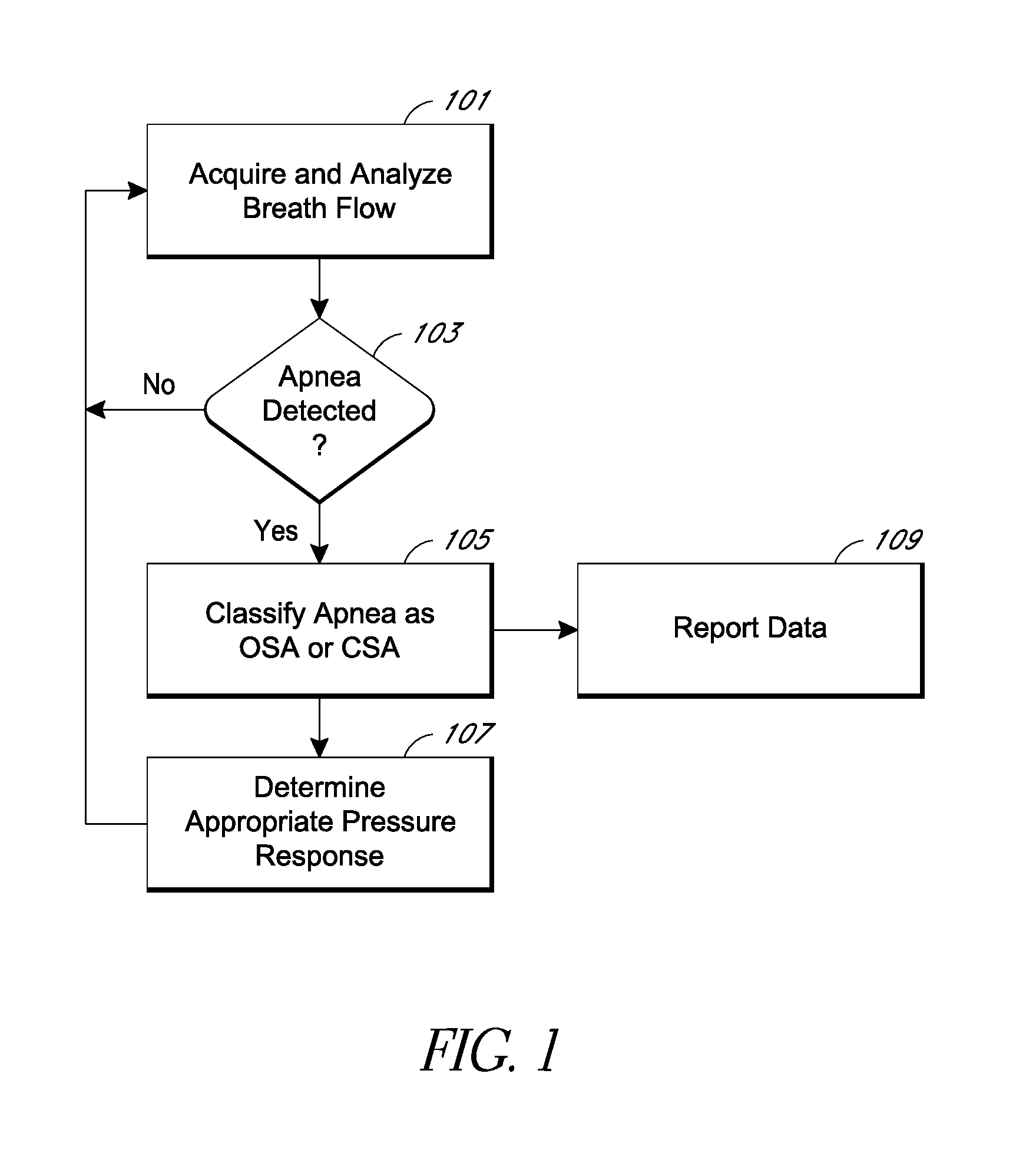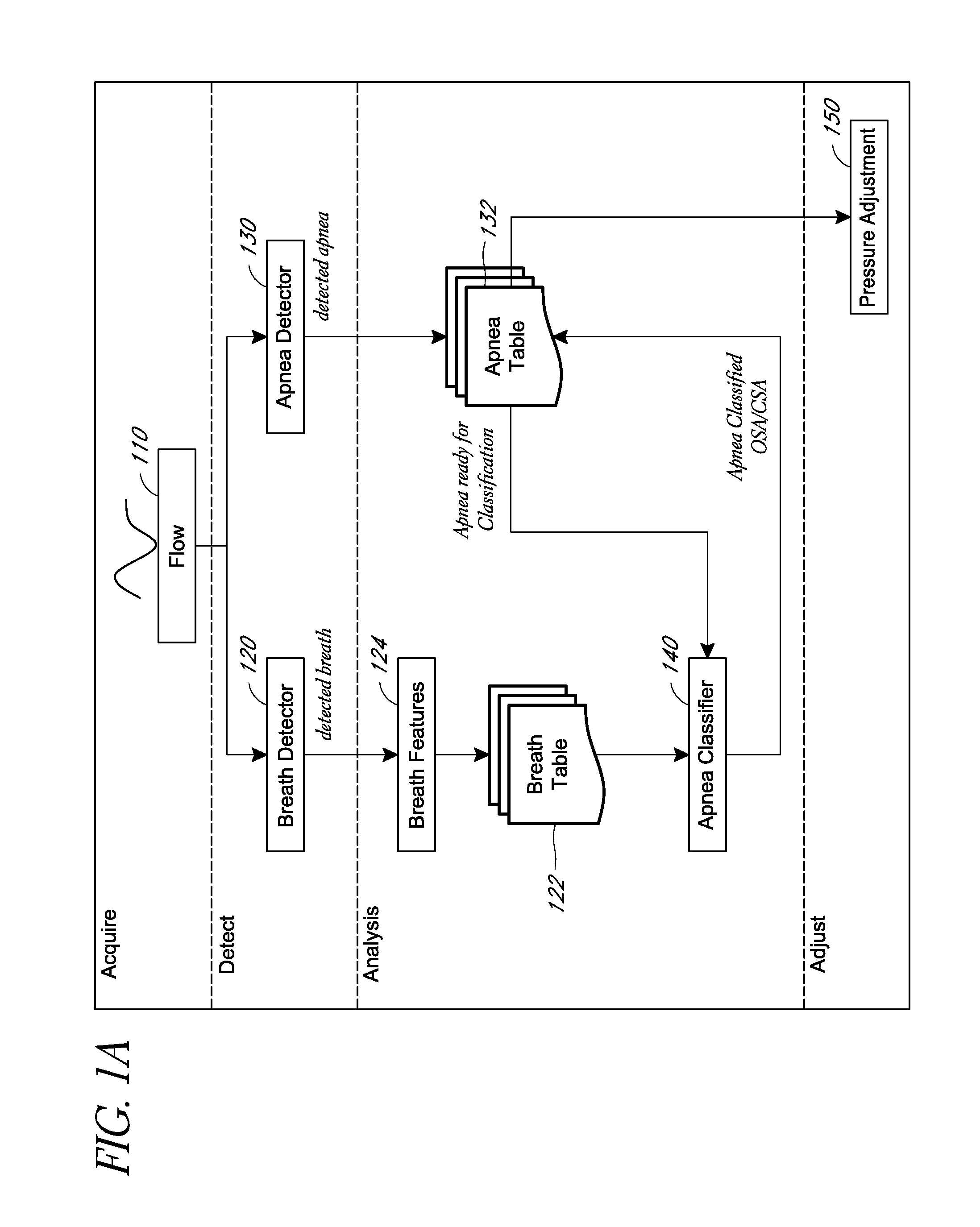Distinguishing between central and obstructive sleep apnea
a technology for obstructive sleep apnea and central sleep disorder, which is applied in the direction of valve operating means/release devices, applications, diagnostic recording/measuring, etc., can solve the problem that patients with sleep disorder breathing can suffer from one or both of osa
- Summary
- Abstract
- Description
- Claims
- Application Information
AI Technical Summary
Benefits of technology
Problems solved by technology
Method used
Image
Examples
Embodiment Construction
[0026]Certain features, aspects and advantages of the present disclosure relate to a method for automated adjustment of respiratory treatment devices, such as CPAP devices, and automated classification of sleep apnea type. In some configurations, the method can be implemented using a sleep apnea classification algorithm and an auto adjustment algorithm that are implemented and integrated as part of an overall CPAP control structure. An embodiment of a CPAP system and its corresponding major hardware components are described with respect to FIGS. 13 and 14.
[0027]As described herein, the sleep apnea classification algorithm can classify an apnea detected by the apnea detector as OSA or CSA by analyzing the characteristics of the breaths surrounding the apnea.
[0028]FIG. 1 shows a flow chart of an embodiment of a process for determining whether an apnea should be classified as an OSA or CSA event. The process starts at step 101 where breath flow signals are acquired and analyzed by a de...
PUM
 Login to View More
Login to View More Abstract
Description
Claims
Application Information
 Login to View More
Login to View More - R&D
- Intellectual Property
- Life Sciences
- Materials
- Tech Scout
- Unparalleled Data Quality
- Higher Quality Content
- 60% Fewer Hallucinations
Browse by: Latest US Patents, China's latest patents, Technical Efficacy Thesaurus, Application Domain, Technology Topic, Popular Technical Reports.
© 2025 PatSnap. All rights reserved.Legal|Privacy policy|Modern Slavery Act Transparency Statement|Sitemap|About US| Contact US: help@patsnap.com



